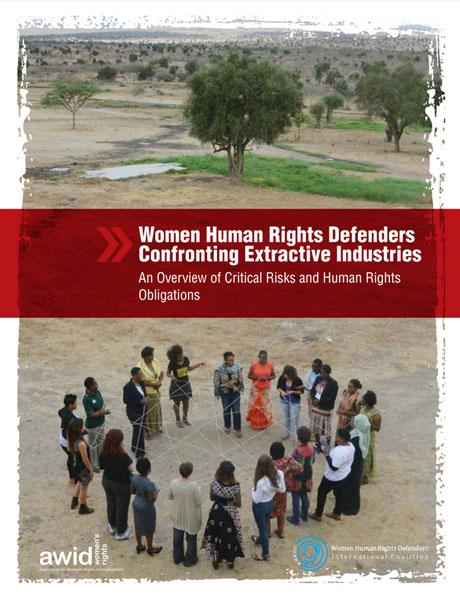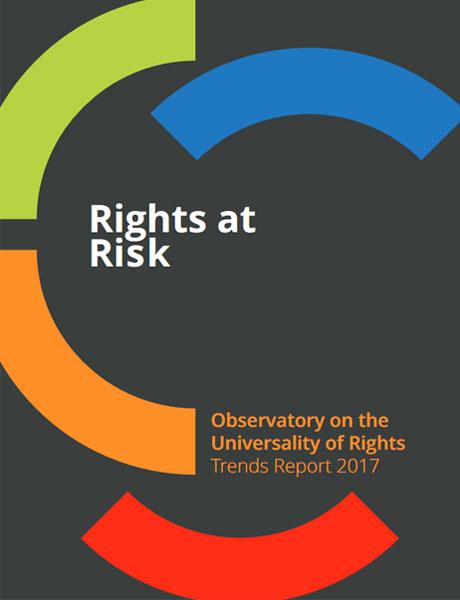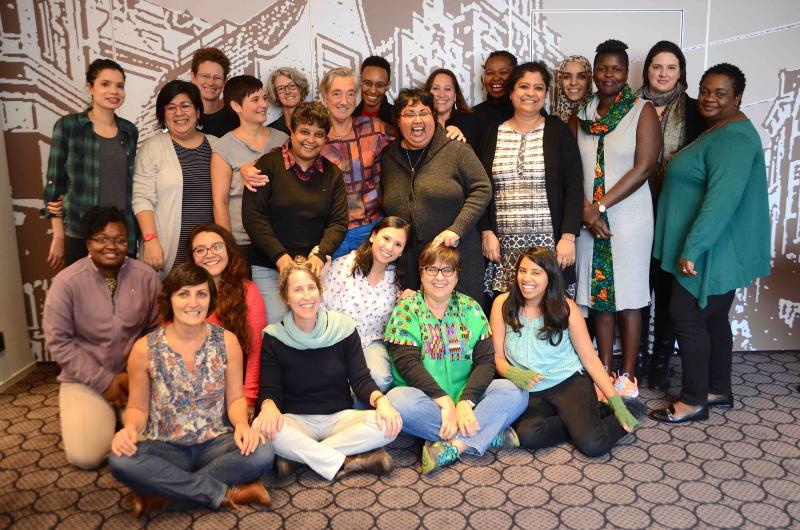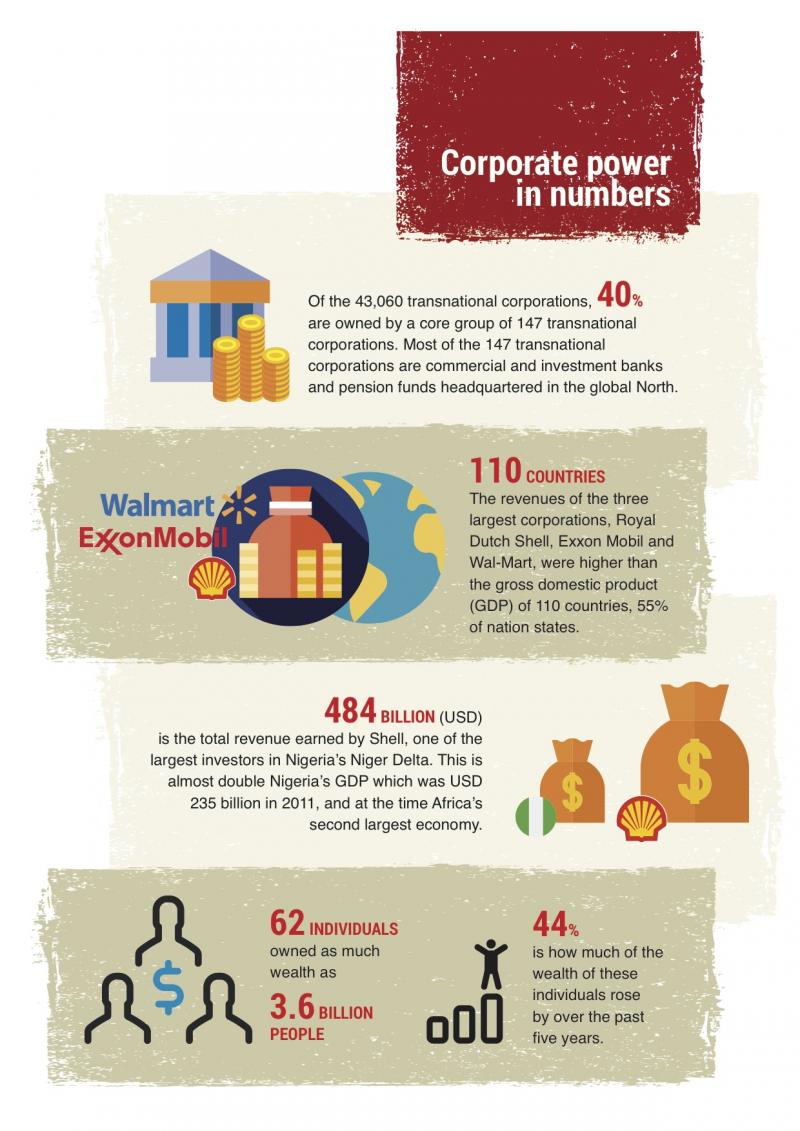
4. Amplifying the work of Women Human Rights Defenders confronting extractive industries
We worked with the Women Human Rights Defenders International Coalition (WHRDIC) to share new research on Women Human Rights Defenders (WHRDs) confronting extractives industries worldwide.
Our regional consultations in Mexico, the Philippines and Kenya revealed that violence against WHRDs in the public and private spheres is deeply connected, and rooted in extractivism - a violent model of development that pursues profit and foreign investment at the expense of human suffering and environmental destruction.
We built on that research by producing a new practical guide featuring concrete strategies used by WHRDs to confront corporate powerand preserve their people, livelihood and territories against extractivism.
5. Collaborating with global feminist alliances

As part of the Observatory of the Universality of Rights (OURs), a multi-organizational collaborative project which aims to monitor, analyze, and share information on initiatives that misuse religion, culture, and tradition to undermine the universality of human rights, we released the first report on global human rights trends and developments between 2015 and 2016.
The report reveals that the global anti-rights lobby is growing and building alliances across regions, religious affiliations, and issues, using new strategies and shrewd arguments to infiltrate multilateral decision-making spaces. Though these actors have already made significant impacts, our work with OURs contributes to spreading awareness and strengthening collective action to resist these alarming trends.
As part of the Count Me In! Consortium (CMI!), a novel joint resourcing and program collaboration bringing together five feminist and women’s rights funds and organizations working in partnership with WO=MEN (the Dutch Gender Platform), and the Dutch Ministry of Foreign Affairs, the CMI Extractives Working Group began the foundational work of investigating and producing strategic knowledge for WHRDs and their movements.
The CMI! Consortium pools expertise, experiences and partners to strengthen and build toward a safe, inclusive, and enabling environment for global feminist movement building and advocacy.

In December 2017, we joined a coalition of international networks, unions, local anti-extractivism, and anti-nuclear groups, scholars of feminism and alternative economies, migrant women’s groups, land, territory and Indigenous rights groups, and feminist groups in Buenos Aires in a Global Week of Action in Response to the World Trade Organization Ministerial Meeting.
6. Raising our fists in multilateral spaces and on the ground
We know that critical decisions that impact global gender justice are often made in the multilateral arena. At the 61st Session of the Commission on the Status of Women at the United Nations, we led and participated in a range of sessions addressing women’s economic inequality in the face of global macro-economic structures and the importance of tax justice for women’s rights, as well as regressive anti-rights trends and actors, and the ways in which feminists are working together to reaffirm and reclaim the universality of rights.
To confront the growing threat of religious fundamentalisms worldwide, and the appropriation of ‘culture’ to undermine women’s rights, we contributed to the report of the UN Special Rapporteur on cultural rights, pushing states and multilateral institutions to implement a human-rights based response to fundamentalisms.
In September 2017, we headed to the 36th session of the Human Rights Council in Geneva, where we advocated for intersectional feminist demands with a particular focus on building feminist support for a UN binding treaty on transnational corporations and human rights, pushing back against patriarchal and heteronormative ‘family values’ campaigns and cultural relativism, and supporting strong resolutions on women’s rights that call out patriarchy and uphold bodily autonomy.
7. Learning and sharing
One of the most important ways we learn is by hearing one another’s stories. While we couldn’t always be in the same room, we found each other online to share important news and analyses. In the lead up to the 61st Commission on the Status of Women (CSW), we got together with the Gender & Development Network and other allies to oppose the narrow agenda of integrating women into existing unjust economic models.
We examined the idea of women’s economic justice, laid out steps for limiting the power of transnational corporations, and reflected on how to safeguard the rights of women workers and women human rights defenders within the context of global governance and informal economies.

In November 2017, we brought together close to 100 activists, women human rights defenders, policy makers, and academics working across diverse fields including the law, international development, workers’ rights, sexual and reproductive rights, and sex workers’ rights to discuss the global rise of fundamentalisms and how we can collectively resist their advance.
2224x1253.jpg)